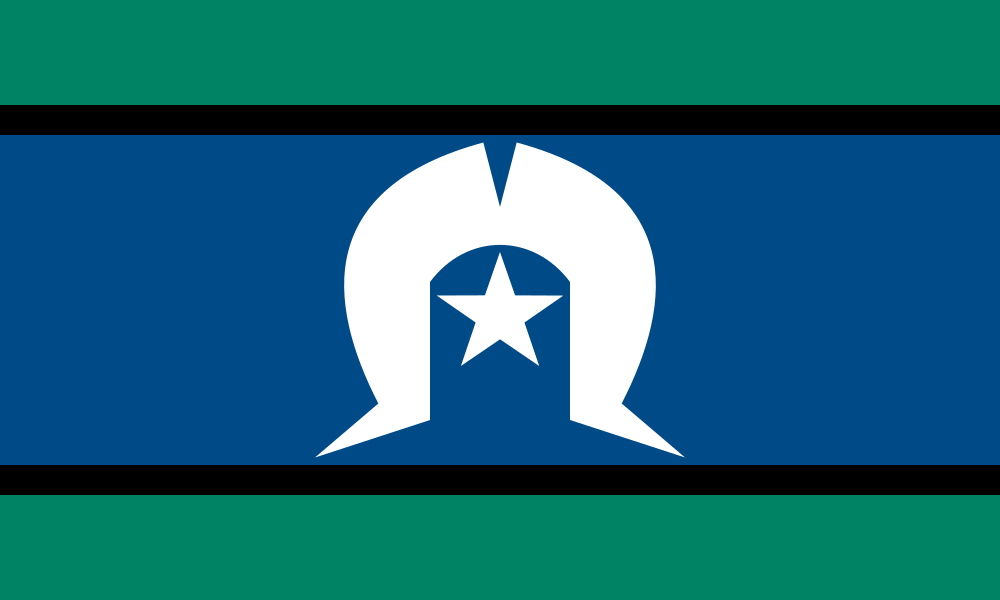
Offshoring Software Development: Benefits, Risks & Options
Offshoring software development is a popular trend often seen as a cost-saving measure by businesses globally. The potential benefits are huge, however the risks can be equally challenging. In this blog, we’ll discuss the key aspects of offshoring and onshoring, including cost savings, intellectual property (IP) concerns, communication barriers, and risk management strategies.
What is Offshoring?
Offshoring refers to the practice of outsourcing software development tasks to developers in another country. The main goal is to reduce costs by taking advantage of lower wages in developing countries. Popular countries used include India, Southeast Asia, and Eastern Europe, where skilled developers charge a fraction of the cost. The most popular country to offshore to is the Philippines, which is referred to as the business process outsourcing (BPO) capital of the world.
- Onshore Software Development: When your project is started and completed by vendors in your country.
- Offshore Software Development: When your software is developed by international developers located outside your country.
The Cost Factor: Onshore vs Offshore
The most compelling reason for offshoring is the potential for cost savings. Matthew Munson, a talent managing director, stated that employers could save up to 80% in salary costs by offshoring to South-East Asia instead of hiring a remote worker in Australia. However, the initial savings are often offset by hidden costs, these include extended project timelines, additional communication costs, and higher project management expenses due to time zone differences.
Onshore development, although more expensive upfront, offers better long-term value by providing more control, higher quality outcomes, and fewer communication barriers. In many cases, the reduced risk of project delays, misunderstandings, and rework makes the higher initial cost worth it
The Null Hypothesis (H₀) in Offshore Software Development
In the context of offshoring, the Null Hypothesis (H₀) refers to the assumption that there is a clear benefit for businesses to use offshore software development compared to working with local providers. The concept challenges the widespread belief that offshoring is inherently more advantageous, particularly in terms of cost savings. However, this hypothesis can often be disproven when other key factors such as quality, communication, and intellectual property protection are considered.
Challenging the Null Hypothesis
The Null Hypothesis (H₀) suggests that offshoring offers clear benefits over onshore development, especially when it comes to cost. While it’s true that offshore development may offer lower hourly rates, a deeper analysis reveals that the situation is far more complex. To assess whether offshoring truly delivers superior value, it’s crucial to evaluate not only cost but also communication, development speed, and intellectual property protection.
Risks and Challenges of Offshoring
1. Loss of Control
One of the biggest downsides of offshoring is the potential loss of direct control over the project. Time zone differences can lead to delays in communication, which slows down the development process. For example, an Australian company working with an Indian team may only have a few overlapping hours for real-time communication.
2. Intellectual Property Protection
Intellectual property protection is a major concern when offshoring, especially in countries where IP laws may not be as strong as Australia's. In India, for example, enforcement of IP laws is often lax, and navigating the local legal system can be time-consuming, confusing, and expensive. Even if your IP is registered in the offshore country, there’s no guarantee that it will be adequately protected.
3. Communication Barriers
Effective communication is important for any software development project. Offshore teams, particularly those in non-English-speaking countries, may struggle with language barriers that can lead to misunderstandings and misinterpretations. Additionally, cultural differences can further complicate communication, affecting the overall quality of the project.
Key Advantages of Onshoring
While the initial cost of onshoring may be higher, it offers several distinct advantages that can result in a higher return on investment (ROI) over the long term:
Direct Communication and Collaboration
One of the most significant benefits of onshoring is the ease of communication. With a small or no time zone difference, you can have real-time conversations, which helps in resolving issues faster and streamlining the development process. Face-to-face meetings are also possible, allowing for better collaboration and a more hands-on approach to project management.
This is particularly important in Agile development methodologies, where continuous collaboration and feedback are crucial for success. Onshore teams can adapt more quickly to changing requirements, whereas offshore teams may struggle due to delayed responses and communication challenges.
Higher Quality Deliverables
Onshore developers often deliver higher-quality results. This is because they are generally more familiar with the local market and are more likely to understand the specific needs of your target audience. They also tend to adhere to higher development standards, reducing the risk of costly rework and ensuring that the product meets your expectations from the outset.
Onshore teams are also more likely to challenge unnecessary requirements and offer strategic input, helping to optimise the project scope and deliverables. Offshore teams, by contrast, may simply follow the initial specifications without offering feedback, which can lead to overdevelopment or features that don’t align with business needs.
Legal Compliance and IP Protection
Onshoring provides the security of working within the same legal framework, ensuring that your intellectual property is automatically protected under Australian law. This eliminates the need for complex legal agreements or worrying about IP violations. Additionally, onshore companies are more familiar with local regulations, making compliance with industry standards and tax policies far simpler.
How to Protect IP When Offshoring
There are several strategies businesses can implement to protect their intellectual property when offshoring software development:
1. Careful Vendor Selection and Due Diligence
Choosing the right vendor is the first step in protecting your IP. This involves performing thorough due diligence on potential partners before committing to a contract. Look for vendors with a proven track record of respecting IP rights and ensure they operate in countries with stronger legal protections for intellectual property. Ask for references from previous clients and verify the vendor’s experience with safeguarding sensitive information.
2. Detailed Contracts with Clear IP Clauses
A well written contract is essential to protect your IP. The contract should explicitly state that all intellectual property developed during the project belongs to your company, not the vendor. This includes not only the final product but also any code, designs, and ideas generated throughout the development process.
The contract should also include clauses that require the offshore team to assign all rights to the work they produce to your company. It’s crucial to specify that all IP rights are transferred upon project completion. Make sure these agreements are enforceable both in your country and in the vendor’s jurisdiction.
3. Non-Disclosure Agreements (NDAs)
Before sharing any sensitive information with your offshore development team, have them sign a non-disclosure agreement (NDA). The NDA should prohibit the vendor from sharing or using your proprietary information outside the scope of the project. It’s important that the NDA is enforceable in both jurisdictions (yours and the vendor’s), which may require drafting the document in accordance with local laws or working with legal counsel in the vendor’s country to ensure enforceability.
4. Limit Access to Sensitive Information
Another effective method of protecting your IP is by controlling access to sensitive materials. Rather than giving the offshore team complete access to your codebase or designs, you can limit their access to only the parts necessary for their work. For example, sensitive algorithms or core functionality could be developed in-house while outsourcing less critical elements to the offshore team. This ensures that the most valuable aspects of your product remain under your direct control.
5. Secure Development Environments
To further protect your intellectual property, consider using secure development environments that limit where and how developers can work on your project. Implementing secure servers and requiring the use of virtual private networks (VPNs) can help prevent unauthorized access to sensitive data. You can also adopt tools and systems that track who accesses certain parts of the code or information, allowing for greater accountability within the offshore team.
6. Ongoing Monitoring and Auditing
Once the project is underway, regular monitoring and auditing are essential. Keep track of how your intellectual property is being handled and ensure that all aspects of the contract, including IP rights, are being adhered to. Regular check-ins, code reviews, and performance audits will help you identify any potential red flags early on.
7. Enforce IP Rights through Local Legal Counsel
It’s important to understand the legal landscape of the country where the offshore vendor works. Partnering with local legal counsel can help you enforce IP rights more effectively. They can guide you through the complexities of the local legal system, help draft contracts and NDAs that are enforceable under local laws, and represent your interests in case of any disputes.
Returning to the Null Hypothesis
Based on these considerations, the Null Hypothesis (H₀)—that offshoring inherently provides a clear advantage over onshore development—can often be rejected. While offshoring may offer some cost benefits on paper, the hidden costs, communication challenges, and risks associated with intellectual property can outweigh the initial savings.
Onshore development, while more expensive upfront, frequently delivers superior outcomes in terms of speed, quality, communication, and IP protection. For businesses that require reliable, high-quality software solutions, the advantages of onshoring may outweigh the perceived benefits of offshoring.
A New Approach: Codebots
Codebots offers a groundbreaking approach to software development by automating much of the coding process. Essentially, it’s code that writes code.
At WorkingMouse, Codebots has been a key tool for delivering high-quality applications efficiently. Capable of generating 300,000 lines of developer-readable code in just a minute, Codebots automates up to 92% of an app’s total code base. This allows developers to focus their efforts on the critical aspects of the project, solving complex business problems and refining the software to meet specific needs.
When Should You Consider Offshoring or Onshoring?
Offshoring is a good option for businesses with flexible timelines, well-defined project scopes, and lower requirements for real-time collaboration. It can be especially useful for non-critical projects where cost savings are the top priority and quality, or speed is a secondary concern. However, offshoring comes with risks related to control, quality, intellectual property protection, and communication that has to be managed carefully.
On the other hand, if your project demands high-quality deliverables, continuous collaboration, and strict IP protection, onshoring may be the better choice. Although onshoring is more expensive upfront, it offers significant long-term value by providing greater control, higher-quality outcomes, and stronger legal protections. The seamless communication and proximity of local teams can also lead to faster project completion and fewer misunderstandings.
The decision between offshoring and onshoring should be based on your project’s specific requirements, timeline, and budget. For high-risk,
critical projects, onshoring is often the safer and more effective option, while offshoring may be suitable for businesses seeking cost
savings with more flexible needs.






